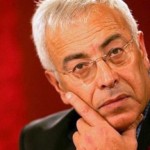Wednesday
Jan202010
Israel-Palestine: An Economic Platform for the Peace Process?
 Wednesday, January 20, 2010 at 6:42
Wednesday, January 20, 2010 at 6:42  Israeli Foreign Minister Avigdor Lieberman and the Secretary-General of the Organization of Economic Cooperation and Development, Angel Gurria, signed an agreement on Tuesday paving the way for Israel to become the 32nd member of the OECD this May.
Israeli Foreign Minister Avigdor Lieberman and the Secretary-General of the Organization of Economic Cooperation and Development, Angel Gurria, signed an agreement on Tuesday paving the way for Israel to become the 32nd member of the OECD this May.Israeli President Shimon Peres stated that membership in the organization would enable Israel to show the world its technological and scientific ability.
However, a West Jerusalem official was cautious: "In politics, nothing is final until it's final, and today there are more countries angry with Israel." Earlier Tuesday, Israeli Arab MK Ahmed Tibi urged the OECD to reject Israel's request for membership, saying state-led discrimination against the Arab sector ran counter to the group's regulations. On the economic side, the OECD is concerned about the country's high level of national debt relative to gross domestic product, as well as its heavy spending on security.
Meanwhile, Palestinian Prime Minister Salam Fayyad received 158 million euros from the European Union as part of the 500 million euros in aid to the Palestinians for 2010. However, the EU representative to the Palestinian Authority, Christian Burger, warned PA that this support would not continue without clear progress in the peace process with Israel.




